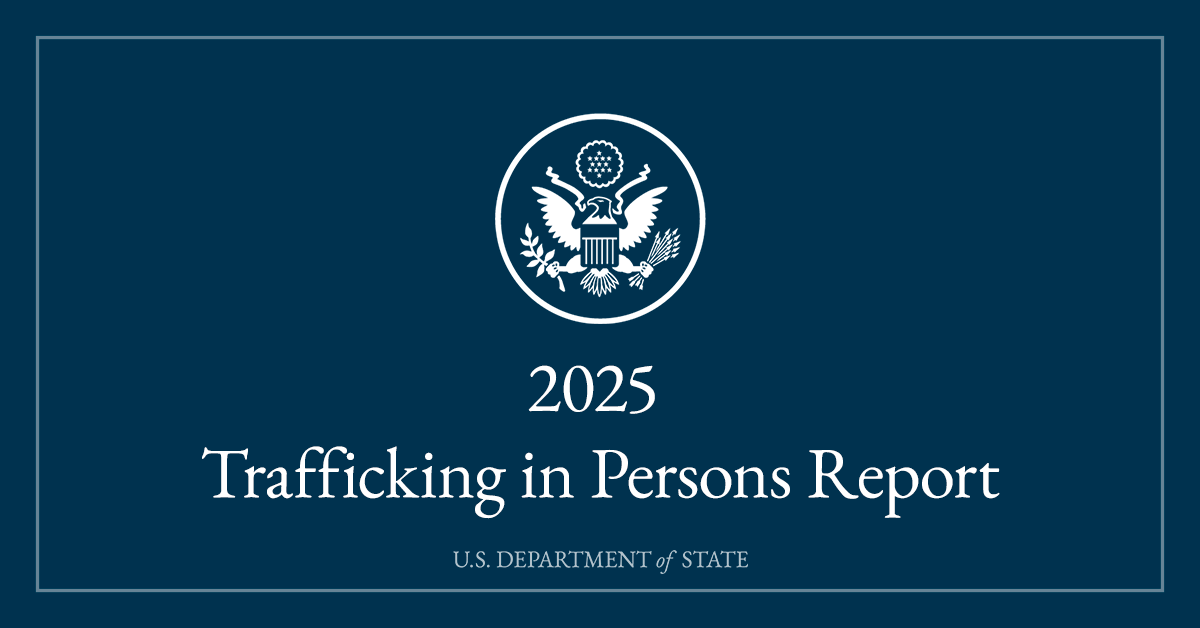News Flash
News Flash

DHAKA, Oct 4, 2025 (BSS) - Bangladesh has been placed in Tier 2 in the US Department of State's 2025 Trafficking in Persons (TIP) Report, recognizing the country's significant and sustained progress in combating human trafficking despite ongoing challenges linked to governance transitions and global migration pressures.
"The Government of Bangladesh does not fully meet the minimum standards for the elimination of trafficking but is making significant efforts to do so. The government demonstrated overall increasing efforts compared with the previous reporting period; therefore, Bangladesh remained on Tier 2," read the report.
According to the report, Bangladesh has made notable advances in victim protection, institutional capacity building, and inter-agency coordination to address trafficking in persons.
The report commended the government for increasing victim identification and protection services, expanding training for frontline officials, and formally adopting a National Referral Mechanism (NRM), a milestone that strengthens the country's structured response to trafficking.
The government identified 1,462 trafficking victims, including 144 sex trafficking victims, 285 forced labour victims, and 1,033 victims of unspecified forms of trafficking. This compares with 1,210 victims identified in the previous reporting period.
After identification, the government referred the victims to protection services, said the report.
Authorities also provided access to health care, legal aid, and shelter through centers operated by the Women and Children Affairs, Social Welfare and Expatriates' Welfare and Overseas Employment ministries.
In partnership with civil society, the government trained police, immigration officers, and labour inspectors on trauma-informed care and victim-sensitive procedures. These measures were praised as key steps toward aligning national practices with international anti-trafficking standards.
The report also acknowledged Bangladesh's ongoing cooperation with international partners, including INTERPOL, India, and South Africa, in investigating transnational trafficking networks.
The government's continued efforts to strengthen anti-trafficking tribunals and improve coordination among the Criminal Investigation Department (CID), Police Bureau of Investigation (PBI), and Counterterrorism and Transnational Crime Unit (CTTC) were also highlighted.
The government has maintained strong prevention efforts under the National Anti-Human Trafficking Authority, which coordinates policy implementation across ministries.
The Ministry of Home Affairs (MOHA), serving as the lead agency, continued to implement the National Action Plan (NAP) 2018-2025, allocating Taka 621.49 million for prevention and awareness activities, a significant increase from the previous year.
National and local-level Counter-Trafficking Committees (CTCs) conducted awareness campaigns through print, radio, and digital platforms in both Bangla and English.
These campaigns helped raise public awareness about safe migration, labour rights, and the risks of fraudulent recruitment.
The Bureau of Manpower, Employment and Training (BMET) continued to operate 104 technical training centers and launched pre-departure training sessions for outbound workers, including a 30-day specialized course for women domestic workers.
These initiatives aim to reduce workers' vulnerability to exploitation abroad.
The government has strengthened bilateral labour agreements with major destination countries such as Malaysia, South Korea, and Brunei, establishing employer-paid recruitment models designed to protect migrant workers from excessive fees.
It also drafted a National Reintegration Policy for returning migrants, including trafficking survivors, to support reintegration and livelihood opportunities upon return.
Bangladesh continued to work with neighbouring countries under the 2015 Memorandum of Understanding (MoU) with India to streamline victim repatriation and cross-border cooperation.
The report also noted that Bangladesh is participating in a regional working group with India, Nepal, Sri Lanka, and Thailand to strengthen anti-trafficking coordination in the Bay of Bengal region.
The TIP report acknowledged that Bangladesh faces challenges, particularly in addressing internal trafficking and improving law enforcement coordination.
However, it emphasized that the country's continued policy reforms, institutional development, and international engagement reflect strong political will to combat human trafficking in all its forms.
Bangladesh's Tier 2 ranking underscores its growing commitment to strengthening rule of law, protecting migrant workers, and ensuring justice for trafficking victims, as the government continues to invest in a more resilient and rights-based anti-trafficking framework.